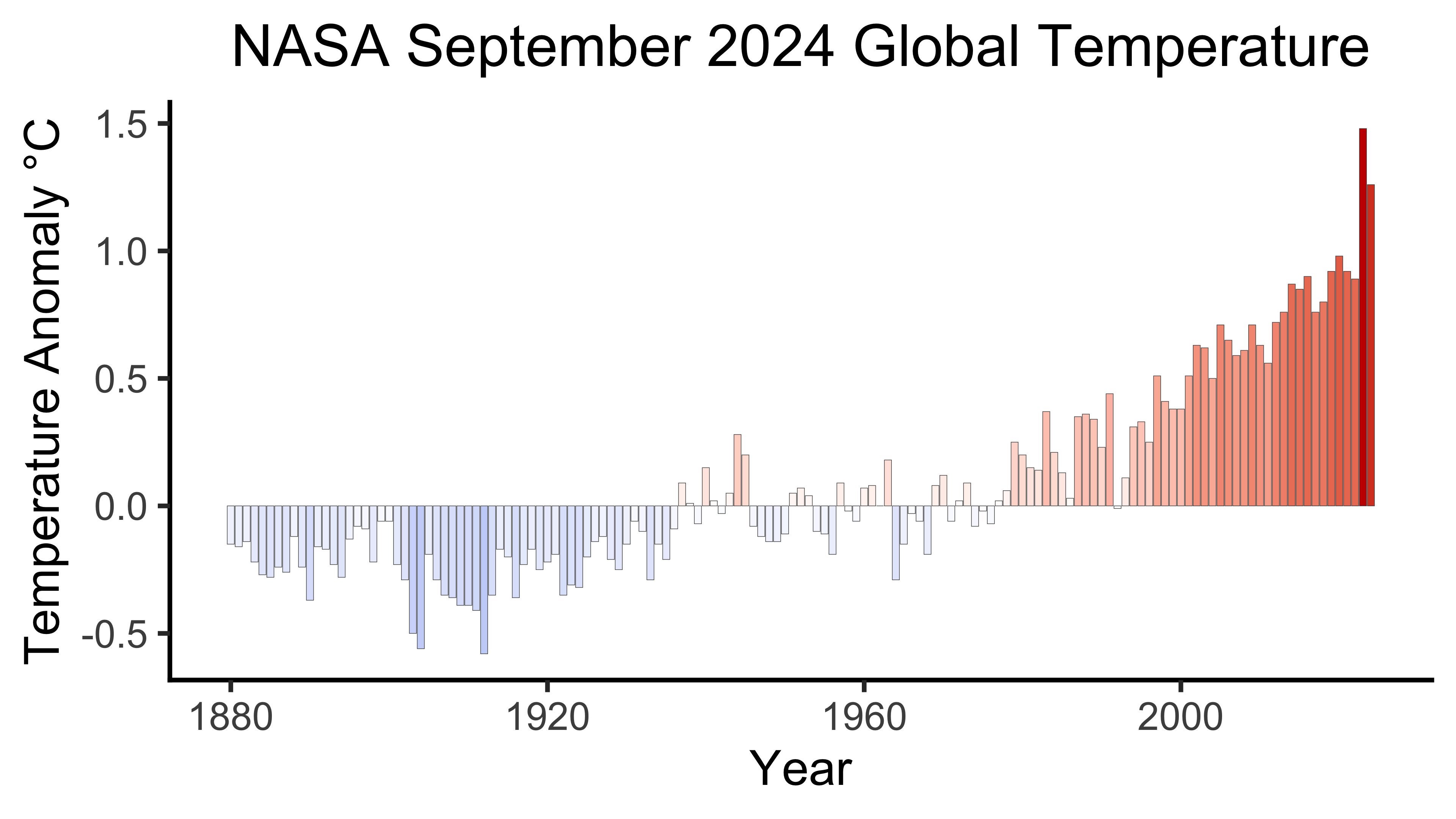This year is likely to be Earth’s hottest on record once again, according to NASA’s chief climate scientist.
Dr. Gavin Schmidt, the director of NASA’s Goddard Institute for Space Studies, wrote on social media Tuesday that new data from September had made it “almost certain to be a new annual surface temperature record.”
This year, the Earth is expected to see temperatures that are more than 2.1 degrees above the average - which is where it sat in 2023 when it set the record.
In August, the European Copernicus Climate Service also projected that this year would be the hottest on record.
“The long-term trends are entirely due to our impact on climate and we aren’t really slowing down as a globe, though we’re slowing down in various places. But, globally, we’re not slowing down and so that is going to continue to push us higher,” Schmidt told The Independent on Tuesday.
Schmidt’s findings comes as his agency announced that last month was the second-warmest September on record: the first non-record breaking month in over a year. The news ended an unprecedented 15-month streak of consecutive new records.
These projections come as scientists expect a weak La Niña climate pattern to develop later in the year, bringing colder weather to the northern US and wetter weather in the South. The year started with its warmer phase, El Niño. Although that ended in May, global temperatures have remained high and the US has felt some major heat through October.
However, the next few months are projected to be pretty neutral, and NASA isn’t anticipating something that could suddenly cool the climate.
Schmidt explained climatologists generally expect El Niño events to nudge the planet into “warmer territories.”
“And so, this year, we started off with an El Niño and so we predicted at the end of last year that 2024 would [have a] 50 percent chance that it would be the warmest year. Now, it’s actually been warmer than we predicted,” he said. “So, there may well be something else going on.”
While multiple factors contribute to rising temperatures – the sun recently reached the solar maximum period of its cycle, leading to increased activity -- the reason for last year’s record warmth is still unexplained.

“And so, the same unexplained thing that nudged 2023 warmer is likely also nudging 2024 warmer. But, we did expect it to be the warmest year on record right at the beginning,” Schmidt said. Next year won’t start with an El Niño event and there might be relief from these kinds of headlines.
The main culprit remains the incessant emissions of greenhouse gases by the fossil fuel industry. The answer to slow warming is to reduce those emissions.
“We’re being tested. The planet is testing us to see if we can explain things that we didn’t anticipate,” said Schmidt. “And, we have not yet passed that test.”







